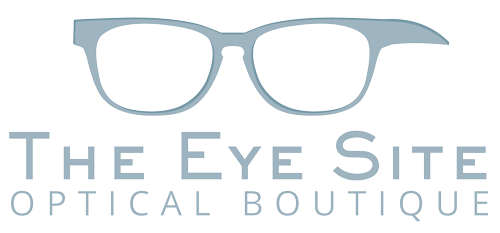The Top Ten High Risk Factors for Eye Concerns

It’s National Save Your Vision Month, and we have more great information for you on The Top 10 High Risk Factors for eye concerns.
This list includes the top reasons that you might need to schedule your eye exams on a more frequent basis than the typical patient.
1. A personal or family history of ocular disease.
If your family has a history of macular degeneration, glaucoma, or
inflammatory eye disease make sure to let your eye doctor know. You are at risk for these conditions as a result of heredity, and should keep regular
appointments to prevent progression as soon as possible if signs of these
conditions manifest.
2. Systemic health conditions with potential ocular manifestation; the biggest ones being diabetes, high blood pressure, high cholesterol, and thyroid disease.
These diseases all have vision impact as secondary conditions. Your eye
doctor should be made aware if you are diagnosed with any of these
diseases so that they are able to take special note of any early signs of the
related eye conditions and assist in early treatment protocols.
3. Certain ethnic groups/racial groups experience high rates of eye disease.
Talk with your eye doctor about what eye diseases may be more prevalent
for your racial or ethnic group. It’s best to have open conversations about
these hereditary traits so that you are both aware and on the lookout for
signs that you may develop these conditions.
4. Occupations that are highly demanding visually or have a high potential of being hazardous to the eyes.
We have a whole blog coming up this month on this topic, because it’s also Workplace Eye Safety Awareness Month! Watch our social media for the link, and come read that blog when it drops!
5. Taking prescription or nonprescription drugs with ocular side effects.
It’s a great idea to be aware of potential side effects for any medication you currently take. If you are taking something that can have ocular side effects, talk with your eye doctor and let them know that medication could be involved with any issues you’re experiencing.
6. Wearing contact lenses.
Wearing contact lenses can cause damage due to dry eye, as well as put
you at risk for injury or infection if you don’t use proper care in applying,
removing, and storing your contacts. Be sure to follow your eye doctor’s
directions in caring for your contacts and how to apply and remove them. If you are experiencing eye discomfort or dry eye as a contact wearer, make an appointment with your eye doctor as soon as possible.
7. Eye surgery or previous eye injury.
As with any body part, when our eyes are healing from a surgical procedure or eye injury, they are vulnerable to further damage. Make sure to follow doctor’s directions for post-operative care and post-injury care. Take good care of your eyes so that they can heal fully.
8. Functional vision in only one eye.
A variety of eye health issues may arise after the loss of functional vision in one eye. Your eye doctor will know specifically what you may be at risk for, based on the reason for your vision loss. Have an open conversation with your eye doctor and be receptive to their advice in ongoing eye care
management.
9. Other eye related health concerns or conditions.
There are a variety of other health concerns or conditions we haven’t
covered here. A good majority of these are covered in other blogs. Take
some time to browse our archive and read about age-related macular
degeneration or glaucoma to learn more.
10. Exposure to blue light (extended screen time).
The average American spends 7 hours per day focusing on screens (whether television, tablets, smartphones, or computers). Extended exposure to blue light is fast rising as the number one cause of eye strain. Eye damage from extended exposure to blue light is also on the rise.
Some symptoms that indicate you need to adjust your screen habits include:
•Dry eyes
•Headache
•Blurry vision
•Eye twitching
•Sore, tired eyes.
We’ll talk more about healthy ways to manage your exposure to blue light in an upcoming blog. Stay tuned to learn more!
We’re always happy to see you! Make your appointment by calling, texting, or sending us an email!
Dr. Kristina and The Eye Site Staff
